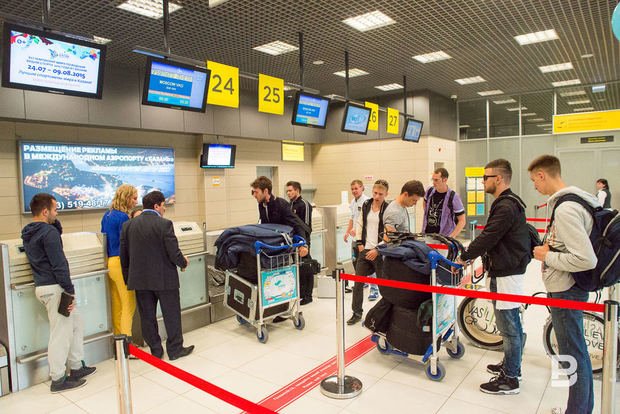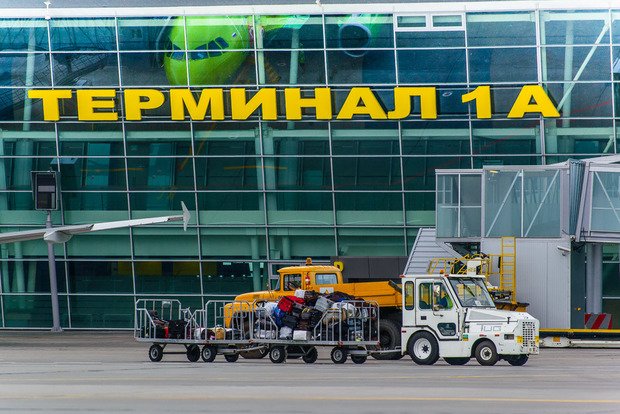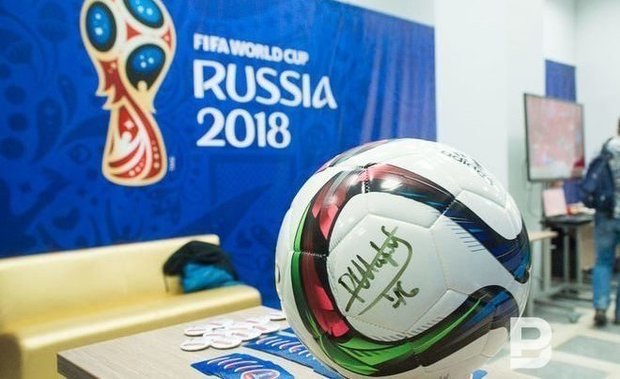Igor Artemyev sees a hand of carriers in soared prices for flight tickets
The head of the Federal Antimonopoly Service (FAS) of Russia questions the fact that the pricing of flight tickets depends on automated systems
The head of the Federal Antimonopoly Service of Russia, Igor Artemyev, in fact, accused the airlines of that they, not some algorithms, have a hand in raising flight ticket prices for the period of major events. However, the airline ticket sales services claim that the prices actually increase automatically — in the first place due to demand. Meanwhile, as Realnoe Vremya found out, the initial rush for tickets to the World Cup host cities has decreased, and the prices for air transportation to host cities in some cases has dropped by as much as 200%. Read the details in the material of our newspaper.
''We have definitely established that it is not automated''
A careful look of the Antimonopoly Service turned to the airlines. The head of the FAS Russia, Igor Artemyev, at the ''government hour'' in the Federation Council stated that, in his opinion, ticket price increase depends not only on electronic systems but also people who lead this price formation.
''All airlines, from Aeroflot to others, say that this machine automatically sets price depending on increased demand. We have definitely established that it's not automated, and these algorithms are set manually, and the creator is not a robot,'' Interfax quotes his words.
He called significant increase in ticket prices in anticipation of major events unfounded.
''Has this robot gone nuts or what? No, it is people running it yet, focusing on very abstract idea that demand increases by some strange values, and I think it's not founded or it is justified to a small extent,'' said the head of the FAS. The antimonopolists are planning to adjust the price formation algorithms together with the airlines.

''One should understand that airlines do a business, not charity''
No prizes for guessing that they started to actively discuss high prices for tickets on the threshold of the World Cup. As Realnoe Vremya wrote, already last November, it is more than six months before the competition, the tickets to the World Cup host cities went up by 40% in price.
Commenting on the statement of the head of the FAS Russia, Aviasales representative Yulia Domracheva says that ticket prices are formed by demand, not individual people.
''It is difficult to imagine how can a person intervene in automated work of big data. One should understand that airlines do a business, not charity. If there is demand for some period and some direction, then ticket prices increase. And if in this case demand still exists, so a price increase is for a reason. Major football events do raise prices by 30-40%. Or, for example, SPIEF (St. Petersburg International Economic Forum — editor's note) — the prices increased fivefold for the days of the forum,'' said Domracheva.
Timur Yusupov, a specialist on public relations for tutu.ru, says that in the case with flight tickets there is a dynamic pricing system.
''There is some base price for flights for a particular route — it is different for every airline and depends on many factors (operating aircrafts, airport charges and so on), and then the flight cost varies over time depending on popularity of the direction and workload of the route, and also closeness to the departure date. That is, the higher demand is, the higher price is, the closer it is to the departure date, the higher the price is,'' says the speaker.

However, the service representative notes that these rules do not always apply. In particular, he recalled that there are subsidized routes or different promotions. But again, here we are talking about lowering or stabilization of prices, and not about its growth. According to him, tickets not always become more expensive closer to departure date because here the price varies depending on routes.
Irina Riabovol, the representative of the international travel metasearch momondo in Russia, clarifies that as companies exist within the market conditions, their priority is to make a profit. And, consequently, the price for flight tickets grows as demand grows.
''The airfare is formed by carriers and is based on macroeconomic indicators of the market. Prices are set by commercial companies whose main priority remains to maximize profits. Accordingly, a growth of demand for certain destinations or during high seasons naturally provokes a rise in prices. The airfare cost also depends on dynamic performance, for example, flight occupancy,'' says Irina Riabovol.
Prices start dancing
The concerns about a significant growth in prices for the World Cup have turned out to be premature. If in November, when it was launched the second phase of ticket sales for the competition, the cost of airfares soared up, now it dropped again to the average values. For example, according to Aviasales, on the day of the quarterfinals (July 6), a flight from Moscow to Kazan and back increased by 42%, up to 9,058 rubles, but now the online aggregator shows tickets for 5,880 rubles (the flights from July 6 to July 8, there and back).
The traveling service tutu.ru confirms this data. According to the statistics provided to Realnoe Vremya, in September 2017 the average flight cost from Moscow to Kazan in one direction was almost 11,000 rubles, in January the price dropped by 72,28% to 3,678 rubles.

The flight to Moscow from any part of the world for the period of the World Cup in September would cost 12,355 rubles, and in January 2018 — already 10,116 rubles. The flight to Yekaterinburg from Moscow over 5 months fell by 2,000 rubles — from 7,226 rubles to 5,020 rubles, to Kaliningrad — from 8,222 to 6,284 rubles, to Rostov-on-Don — from 7,650 to 5,348 rubles, to Saint Petersburg — from 6,171 to 4,846 rubles, to Samara — from 8,547 to 5,466 rubles, to Sochi — from 9,064 to 4,014, to Volgograd — from 9,285 to 3,781 (by almost 200%).
There was no data for the flight from Moscow to Saransk for September, but if to compare with October, the price in January fell from 8,716 to 5,349 rubles. Perhaps, the only city hosting the World Cup where prices in January compared to September grew up is Nizhny Novgorod. The flight there from the capital in the autumn cost 2,913 rubles, and at the beginning of 2018 they would cost 4,188 rubles. Although the general trend for 5 months still shows a slight but price reduction.
Despite price stabilization, one should not forget that there is no confidence that they will remain at the current level, that is why football fans who haven't bought tickets to host cities of the World Cup yet should take care of this right now.